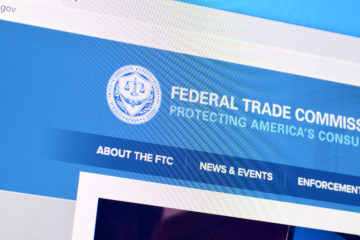The Market Institute Senior Fellow Norm Singleton has a new article in Real Clear Markets posing this question: Do conservatives in Congress really want to align themselves with the Federal Trade Commission Chair Lina Khan and stand in the way of the free market?
“Ever since Donald Trump descended, in all his glory, down the Trump Tower escalator to announce his 2016 Presidential candidacy, the Republican party has been influenced by a populist strain of conservatism. It’s a trend that has not been seen since the 1990s when Pat Buchanan and his brigades embraced a nationalism that rejected both the neoconservative crusade for global democracy and the neoliberal crusade for a global trading system managed by international organizations like the World Trade Organization and the International Monetary Fund.
Despite Buchanan’s support for protectionist policies like tariffs and trade unionism, he believed in a relatively free market and a limited federal government. He regularly referred to himself as a “supply-sider” when it came to economics and proposed using revenues from tariffs to help offset his proposed pro-growth and pro-family tax cuts. He also supported eliminating entire bureaucracies and shutting down several cabinet departments. He favored not only eliminating income tax, but the IRS entirely. He also opposed socialized medicine in the form of Hillary Care. Much of his opposition to the so called “free trade” agreements NAFTA and GATT stemmed from concerns of empowering international bureaucrats to impose new burdens on small businesses. Buchanan joined libertarian leaders like Murray Rothbard and Ron Paul in warning that these international agreements would create a government system of managed trade that would only benefit big corporations.
Unfortunately, Buchanan’s heirs do not share his commitment to domestic free markets and have abandoned the cause of limited government. Politicians such as Senator Josh Hawley, Representative Ken Buck, and Governor Ron DeSantis, as well as Donald Trump himself, are advocating for the usage of governmental authority to punish businesses that offend them. These politicians especially want increased governmental control of big tech companies like Facebook and Google because of their real and perceived attempts to silence conservative viewpoints.
The right populists may soon have to choose between protecting America’s sovereignty and their desire to use big government to punish big tech. Federal Trade Chairwoman Lina Khan is pursuing a radical agenda to use antitrust law as a vehicle to expand federal control over American businesses. One way she is seeking to implement her agenda is by cooperating with European antitrust regulators. She recently spent taxpayer money to send FTC staff to Europe to assist in the implementation of the EU’s Digital Marketing Platform Act. One part of the DMPA prohibits preferencing, where a large company manipulates search results and algorithms to promote its own products over those of smaller companies who use their platform. In a parallel move, the Biden Administration is supporting The American Innovation and Online Choice Act, which also prohibits preferencing. Despite passage through the Judiciary Committee last year and Senate Majority Leader Chuck Schumer promising to hold a roll call vote, the bill has not been considered in either house.
The bill’s failure may have inspired Khan to assist her EU counterparts in banning preferencing. Khan may hope that if the EU ban is successful, American tech companies will voluntarily follow suit in the U.S. on the grounds that it is easier to adopt one uniform standard in the international market. The European ban could also help build support for similar legislation in Congress, and may even cause the WTO to find that Congress’ failure to ban preferencing gives American tech companies an unfair advantage.”


